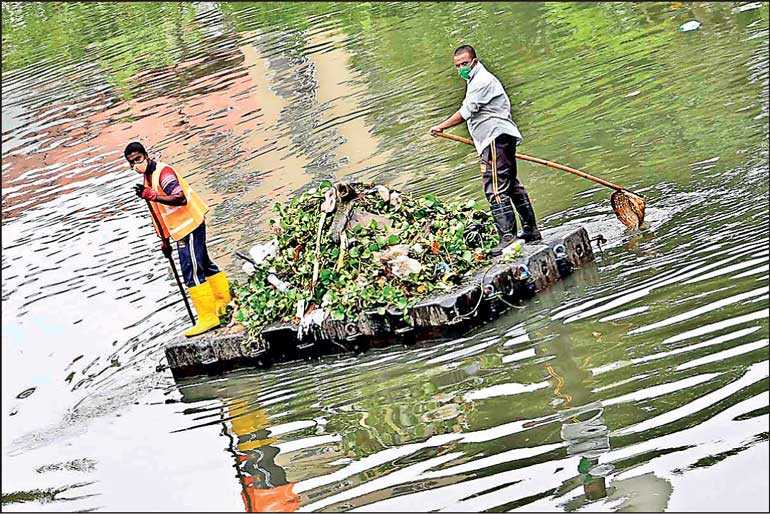Monday Feb 16, 2026
Monday Feb 16, 2026
Friday, 7 August 2020 00:00 - - {{hitsCtrl.values.hits}}

Responses to the COVID-19 crisis must be centred on the well-being of people, empowering them and advancing equality. Driving change in the people-environment nexus to protect the health of people and natural resources is key to a future that does not repeat the crisis we are in today – Pic by Shehan Gunasekara
By Armida Salsiah Alisjahbana, Kanni Wignaraja and Bambang Susantono
With the pandemic derailing us, we need big initiatives to achieve sustainable development goals.
As lockdowns ease in countries across Asia and the Pacific in the wake of the COVID-19 pandemic, one thing is clear – a return to business as usual is unimaginable in a region that was already off track to meet the Sustainable Development Goals (SDGs). The virtual High-Level Political Forum on Sustainable Development recently convened governments and stakeholders to focus on the imperative to build back better while keeping an eye on the global goals.
Asia was the first to be hit by COVID-19 and feel its devastating social and economic impacts. Efforts to respond to the pandemic have revealed how many people in our societies live precariously close to poverty and hunger. Many countries are taking bold actions to minimise the loss of life and economic costs.
As attention shifts from the immediate health and human effects of the pandemic to addressing its social and economic effects, governments and societies face unprecedented policy, regulatory and fiscal choices. The SDGs – a commitment to eradicate poverty and achieve sustainable development, globally, by 2030 – can serve as a beacon in these turbulent times.
Grounds for optimism
The pandemic has exposed fragility and systemic gaps in many key systems. However, there are many workable strategies that countries have used to accelerate progress related to development goals and strengthen resilience. Countries have taken steps to extend universal healthcare systems and strengthen social protection systems, including cash transfer and food distribution systems for vulnerable households. Accurate and regular data have been key to such efforts.
Innovating to help the most disadvantaged access financing and small and medium-sized enterprise credits have also been vital. Several countries have taken comprehensive approaches to various forms of discrimination, particularly related to gender and gender-based violence. Partnerships, including with the private sector and financing institutions, have played a critical role in fostering creative solutions. These experiences provide grounds for optimism.
Responses to the COVID-19 crisis must be centred on the well-being of people, empowering them and advancing equality. Driving change in the people-environment nexus to protect the health of people and natural resources is key to a future that does not repeat the crisis we are in today.
A revolution needed
We need a revolution in policy mindset and practice. Inclusive and accountable governance systems, adaptive institutions with resilience to future shocks, universal social protection and health insurance, and stronger digital infrastructure are part of the transformations needed.
Several countries in Asia and the Pacific are developing ambitious new strategies for green recovery and inclusive approaches to development. South Korea recently announced a New Deal based on two central pillars: digitisation and decarbonisation.
Many countries in the Pacific are focusing on ‘blue recovery’, seizing the opportunity to promote more sustainable approaches to fisheries management. India recently announced operating the largest solar power plant in the region. China is creating more jobs in the renewable energy sector than in fossil fuel industries.
Institutions such as the United Nations and Asian Development Bank have mobilised to support a shared response to the crisis. Now it is vital that we enable countries to secure the support they need to go beyond, to achieve the SDGs.
(Armida Salsiah Alisjahbana is UN Under-Secretary-General and Executive Secretary of the Economic and Social Commission for Asia and the Pacific; Kanni Wignaraja is UN Assistant Secretary-General and Director of the Regional Bureau for Asia and the Pacific, UNDP; and Bambang Susantono is Vice-President for Knowledge Management and Sustainable Development, Asian Development Bank.)